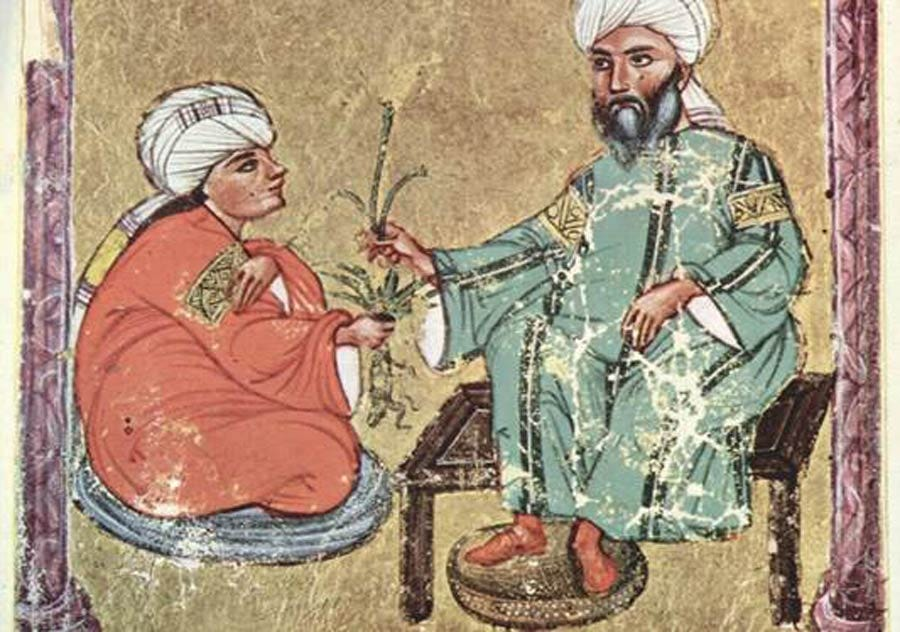The Islamic Golden Age: Al-Razi and Ibn Sina Advance the Science of Mind and Body
- Yaein Choi

- Aug 15, 2025
- 3 min read
Updated: Sep 7, 2025

While medieval Europe largely retreated from scientific inquiry, the Islamic world was experiencing a remarkable golden age of learning and discovery. From the 8th to 13th centuries, Islamic scholars didn't merely preserve the ancient Greek texts of Hippocrates and Galen—they critically examined, refined, and significantly advanced these ideas. Two towering figures of this era, Al-Razi and Ibn Sina, transformed our understanding of the mind-body connection in ways that would profoundly influence the development of biopsychology for centuries to come.
Abu Bakr al-Razi (known in the West as Rhazes, 854-925 CE) was a Persian polymath whose approach to mental health was centuries ahead of its time. Working in Baghdad's renowned Bimaristan (hospital), Al-Razi was among the first physicians to systematically study mental illness through careful clinical observation rather than relying solely on ancient authorities. He distinguished between different types of mental disorders with remarkable precision, describing conditions we would now recognize as depression, anxiety, and what might be bipolar disorder. Most remarkably, Al-Razi pioneered early forms of psychotherapy, believing that psychological treatment could be as important as physical remedies. He documented cases where he used what we might now call cognitive-behavioral techniques, challenging patients' irrational thoughts and helping them develop coping strategies.
Al-Razi's most famous contribution to biopsychology was his sophisticated understanding of psychosomatic medicine—the idea that mental states could directly cause physical symptoms. He documented numerous cases where emotional distress manifested as physical illness, and conversely, how treating the mind could heal the body. In one celebrated case, he diagnosed a young man's mysterious paralysis as psychologically induced heartbreak and devised an elaborate treatment involving staged anger to shock the patient back to mobility. Perhaps most impressively, Al-Razi conducted what may be history's first controlled clinical experiment in psychological healing, systematically testing whether patients recovered faster in different hospital environments, ultimately concluding that mental state significantly affected physical recovery.
Building upon Al-Razi's clinical insights, Abu Ali al-Husayn ibn Sina (known as Avicenna in the West, 980-1037 CE) developed the most comprehensive medical system of the medieval period. His masterwork, "The Canon of Medicine," became the standard medical textbook in both the Islamic world and Europe for over 600 years. Ibn Sina's genius lay in his ability to synthesize Aristotelian philosophy with clinical medicine, creating a sophisticated framework for understanding how mental and physical processes interacted. He proposed that the soul had multiple faculties—vegetative, animal, and rational—each corresponding to different levels of biological and psychological function, from basic metabolism to complex reasoning.
Ibn Sina made particularly significant advances in neuropsychology, developing detailed theories about how the brain processed information and controlled behavior. He described the brain's ventricles as centers for different mental functions and proposed that mental illness often resulted from disruptions in the brain's normal operations. His clinical observations of neurological conditions were remarkably accurate; he distinguished between different types of paralysis, described what we now know as Parkinson's disease, and documented the psychological effects of various brain injuries. Ibn Sina also pioneered systematic approaches to treating mental illness, advocating for a combination of medication, environmental changes, and what we might recognize as early cognitive therapy.
Both Al-Razi and Ibn Sina shared a crucial insight that would prove central to modern biopsychology: the recognition that effective treatment required understanding both mental and physical aspects of illness. They developed sophisticated diagnostic techniques that considered patients' emotional states, social circumstances, and physical symptoms as interconnected phenomena. Their hospitals became centers for holistic treatment, where mental health was considered as important as physical health—a revolutionary concept that wouldn't fully reemerge in Western medicine until the 20th century. They also emphasized the importance of the doctor-patient relationship, recognizing that the physician's manner and the treatment environment could significantly influence healing outcomes.
The contributions of these Islamic scholars represent a crucial bridge between ancient Greek theory and modern biopsychological practice. While European medicine remained largely stagnant during the medieval period, Al-Razi and Ibn Sina were conducting systematic clinical research, developing new treatment methods, and advancing our understanding of mind-body connections. Their works, eventually translated into Latin, would profoundly influence the Renaissance revival of medical learning and help establish the empirical, observation-based approach that characterizes modern biopsychology. In preserving and advancing ancient wisdom while pioneering new discoveries, these remarkable scholars ensured that the biological approach to understanding the mind would not only survive but flourish, setting the stage for the scientific revolution that would transform our understanding of human nature.



Comments